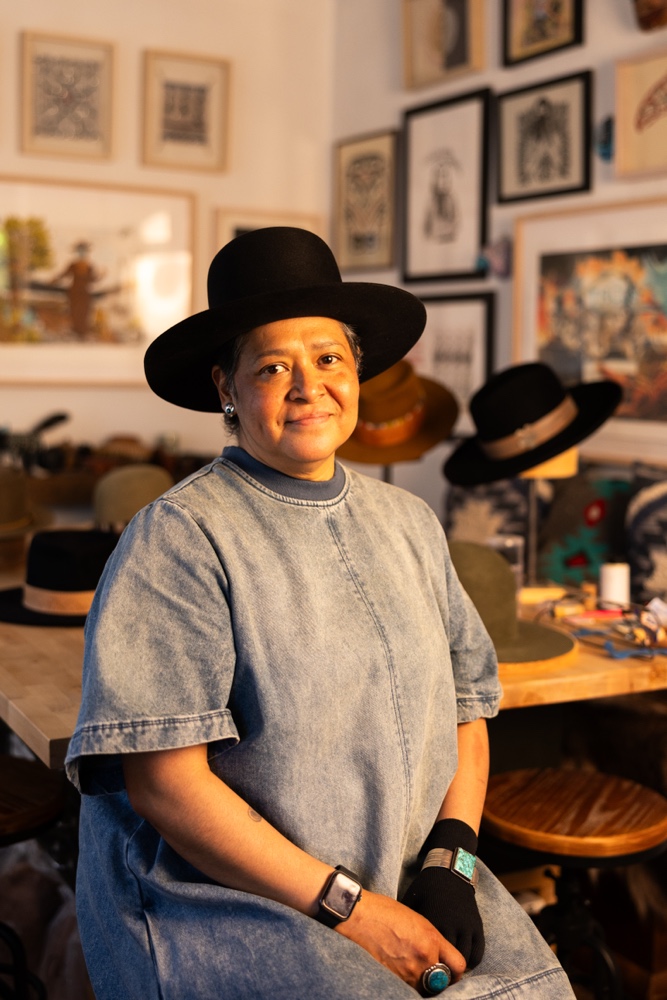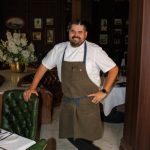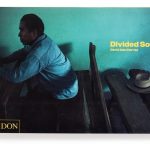Story and photography by
Annabella Mireles
Self-expression is an outlet some people use when they are getting ready in the mornings. Whether it’s customizing a jean jacket with patches that show all the different states you’ve been to or wearing your favorite band’s T-shirt, we all have our own pieces we like to wear that tell others a little bit about us.
Cynthia Gutierrez-Krapp takes self-expression to a new level, curating custom hats and tailoring them to your own likes and even physical features.
Guiterrez-Krapp, an El Paso native and owner of Aghaa’ Hat Co., grew up in California and attended New York Fashion Institute of Technology. It was there she hand-crafted her first hat.
“A friend and I went to the hat making district in New York City,” she says She taught me which felts were good quality and how to steam them and use hat blocks. From there, I looked up videos on how to make them and that’s how I ended up with my first hat. Then people started asking me where I got it, and that’s when the business all started.”
After her friends became her first clients, she slowly started up her own hat business, which she named after her indigenous roots.
“I am Navajo (Diné), Apache, and Yaqui,” she says. “Aghaa’ means ‘wool’ or ‘hair’ of any animal in Diné. My mom didn’t tell my sister or I we were Diné and Mescalero Apache. We found out through a National Geographic DNA test I had taken, and that’s when I asked my mother. She hadn’t remembered that she lived on a reservation when she was younger and part of that was because they lived through a tough time. It was the 50s, and racism was really bad back then so my grandmother would tell my mother ‘Don’t tell anyone you’re Diné, tell them you’re Mexican, never say you’re Indian.’”
Rather than hide her identity after discovering her indigenous roots on her mother’s side, Guitierrez-Krapp embraced her family history and does so through the way she crafts her hats.
With open crowns, handmade beadwork, and reused vintage beaver felts, she lets them serve as a symbol of the pride she has in her ancestry as well as her love of the desert by depicting cactus, blankets and saddles, and mountains.
Guiterrez-Krapp worked out of her store on Alameda that opened up in 2020, however, she had to close after being diagnosed with cancer and has been working out of her home studio for the past year.
“When I feel really down, tired, and overwhelmed, I’ll have to force myself up to go to the studio and within ten minutes, I’ll forget how bad I was feeling,” she says about how crafting has helped her find solace. “I think it’s all of the touching and shaping that I just get lost in. Even when I’m too tired for that, I can just do beadwork which is like meditation for me because I can rest while I work. It’s nice to be working. It’s not like I can get another job because I can’t work more than three hours at a time. I’ve learned a lot about living in the now and not worrying about the future.”
While going through treatment, she has been working on custom orders she’s been receiving and also offers in-person consultations to make sure the hats both literally and figuratively are the “perfect fit” for her customers.
“I make-to-order, so part of the client goes into how the hat looks,” she says. “They choose the band and style. When they try it on, of course I want it to fit well, but I want them to feel like it’s part of them.”
Guitierrez-Krapp has received orders from outside of the country like New Zealand, in which she was requested to create a not-so-traditional hat.
“She was indigenous to New Zealand, so she was Māori, and she wanted me to bead-embroider a boat on the back of the hat with a basic compass so she could use it in school to teach kids about sailing,” she says.
Not only is Guitierrez-Krapp amazing at her craft, but she is also one of the few women in her field. While being part of the minority, she is also uplifting other women in the art space.
“Hat making was very much a male-dominated field,” she says. “When I first started, the United States had reported only eight [women] hat makers in the country. It’s slowly gained more popularity, and I’ve seen more women embracing and taking the craft on. When I’m making the hats, I’m also using pieces other local women have put together. My friend is a weaver and has weaved for me, and my friend Claudia is a jeweler and has made several pieces for me too.”
Although her brick-and-mortar location closed, Guitierrez-Krapp has plans for future opportunities with her business.
“I was planning to open in October again, since I can’t commit to that because of my treatment, my plan is for me to have a pop-up shop,” she said. “I have a shipping container near Paradox and Old Sheepdog by Lincoln Park, and the plan is to use the front part of it as the pop-up.”
Guitierrez-Krapp has found comfort in her work and continues to do what she loves while also fighting. She has created a product that will not only last several lifetimes, but a unique made-to-order product that combines peoples’ passions with the desert landscape and her indigenous roots.
















